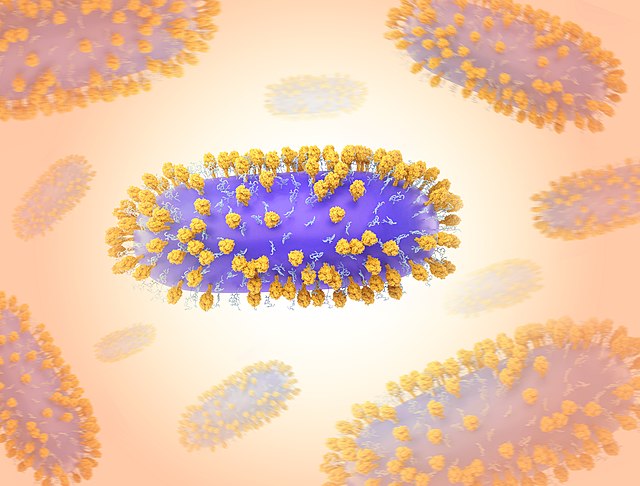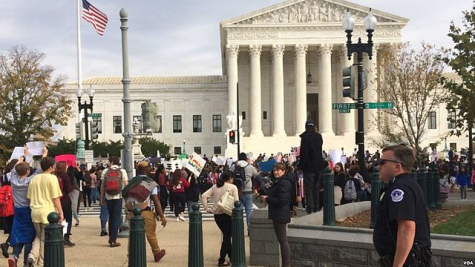A ‘tripledemic’ raises concerns once again
December 21, 2022
Nearly three years have passed since the start of the COVID-19 pandemic, and items such as face masks and hand sanitizer have become a common sight. The public has begun returning to normal only recently, ridding themselves of social distancing and masks. However, this winter seems rougher than ever. A ‘tripledemic’ of coronavirus, influenza—and the current addition, Respiratory Syncytial Virus (RSV)—has begun. RSV is a highly contagious virus that infects the respiratory tract. It can spread through contaminated droplets from sneezing or coughing, as well as through the skin and other surfaces. RSV is so common that most children have had it by the time they are two years old. Typically, it has mild cold-like symptoms; most people recover in less than two weeks. However, it may lead to life-threatening conditions like bronchiolitis or pneumonia, especially for infants, older adults, and those immunocompromised. Examples of severe symptoms include fatigue, rapid breathing, or bluish fingernails. This year, RSV infection has already hit record levels in young children, but adult cases are rising.
This year’s flu season started earlier than expected. The Centers for Disease Control and Prevention (CDC) estimated that there would be 9 million cases of influenza, but that number could quickly be surpassed. Since Oct. 1, there have already been 8.7 million cases. The number of flu deaths has already approached last year’s total of 5,000. As cases increase, hospital beds fill up quickly, and many hospitals reach their maximum capacity.
In a positive trend, RSV has reached its peak levels in the South, while in the Midwest, Mid-Atlantic, and New England, they are plateauing. However, COVID-19 cases have sharply increased since Thanksgiving, while flu infections are also a decade high and will likely rise during the upcoming holiday season.
At the beginning of October, the Children’s Hospital Association and the American Academy of Pediatrics asked the Biden administration to declare a public health emergency. However, this has not been addressed since public health emergencies are only called when a situation has the “potential to overwhelm routine community capabilities.” As of now, a precaution you could take is getting a vaccine, including flu shots and the COVID booster. Though no RSV vaccine is currently available, Pfizer has begun developing one for senior citizens, hoping it will gain approval from the Food and Drug Administration (FDA) in May 2023.
Although influenza, COVID-19, and RSV are all highly contagious viruses with overlapping symptoms, there are still differences between the three. COVID-19 and the flu can cause fevers, chills, headaches, vomiting, or muscle soreness. On the other hand, RSV comes with symptoms associated with the common cold; this includes a runny nose, fever, congestion, headache, and muscle soreness. Another way to identify illnesses is by determining how quickly symptoms appear. For example, COVID-19 symptoms take longer to show, and the virus remains infectious for longer. The flu, meanwhile, only takes about a day. Regarding recovery, COVID and RSV take around a week or two, while the flu typically lasts four to seven days. Of course, the only way to accurately diagnose your illness is by visiting a doctor or taking an at-home test, which can test for all three of the viruses at the same time.
If you do catch RSV, consult with a doctor, but in the meantime, one method to recover faster is to create a moist atmosphere for breathing, such as turning on a humidifier or vaporizer nearby, which can help with a stuffy nose. Consuming many fluids while ill will also help wash out your system, progressing toward a speedy recovery. Another approach is using saline nasal drops and over-the-counter painkillers. The nasal drops can help clear congestion, while the painkillers can alleviate a sore throat. Also, avoid any smoke—direct or secondhand—as this can aggravate symptoms. And if you have severe symptoms, call 911 and get help immediately.
During the upcoming holiday season, numbers will likely surge again as we meet with relatives and friends. However, the CDC believes we can prevent them from rising by taking necessary precautions. They are once again recommending wearing masks indoors. Even simple acts like washing your hands frequently and getting vaccinated can reduce the chances of infection. And as always, stay safe!




